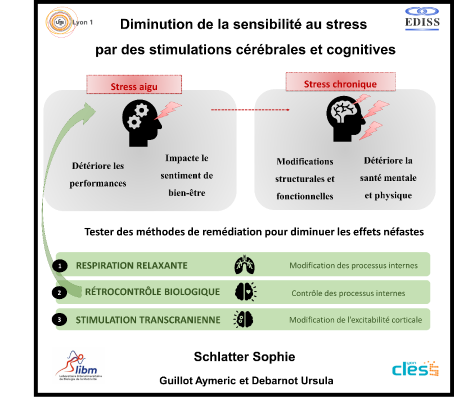Remediation of stress using brain and cognitive stimulation techniques
Managing the harmful impacts of stress is a critical societal issue. Stress appears during a situation eliciting anxiety, and is characterized by an increase in psychological (attention, perceived stress) and physiological (heart rate) arousal. Acute stress has a negative impact on cognitive abilities and, when it is experienced repeatedly, it induces maladaptive cerebral changes. Chronic stress leads to the development of serious mental and/or physical illnesses. The advent of new treatments such as biofeedback and brain stimulation techniques have already shown some beneficial effects. However, the isolated or cumulative impact of these methods on the prevention of the harmful effects of short and long term stress, particularly on cognitive performance, remains unexplored. The objective of this project is to identify the most effective technique for reducing the deleterious effects induced by acute stress, and to apply it repeatedly in individuals subjected to chronic stress. The combined remediation techniques should significantly reduce psychological and physiological stress. Repeated remediation sessions should promote brain plasticity and promote well-being, thus answering to a major societal need.



